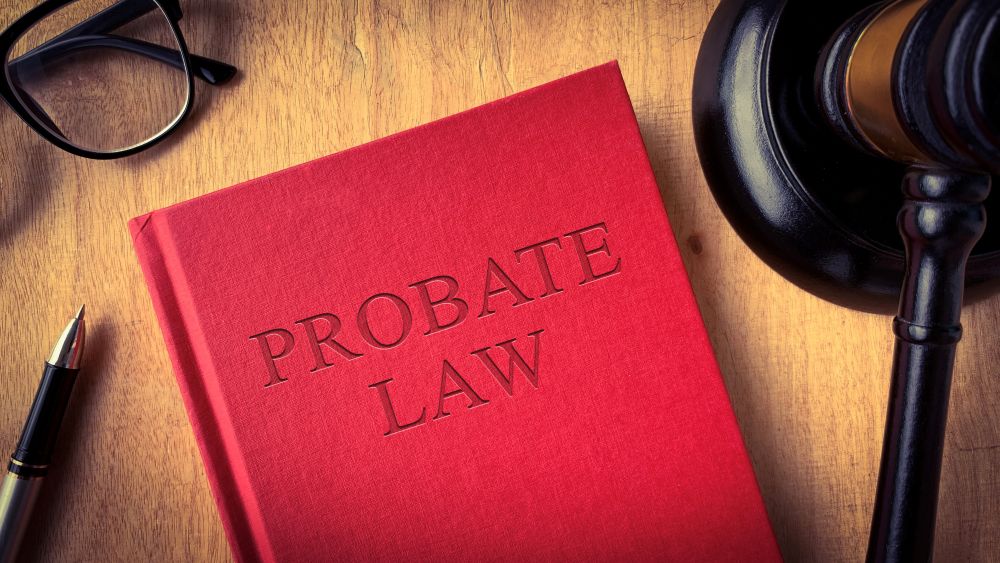Property issues often feel tangled at the best of times, and losing a family member can make those knots even tighter. At Trusts and Estates Law Group (of North Carolina), we help families keep their loved ones’ wishes front and center while steering clear of common missteps. One big question we hear is whether a house, farm, or piece of land must pass through probate after death. This article breaks down the rules, the exceptions, and the steps you can take so that real estate transfers smoothly and on time.
Probate in North Carolina: An Overview
Probate is the court-supervised process for gathering a decedent’s assets, paying valid debts, and handing property to those entitled to receive it. The Clerk of Superior Court sits as probate judge in every county, reviewing paperwork, granting “letters,” and keeping a close eye on deadlines. When a will exists, the clerk follows its terms; without one, the clerk leans on the state Intestate Succession Act to decide who receives what.
Most personal property, such as bank accounts, must move through probate, while real estate sits in a gray area. That gray area is where many families get stuck, so let’s clear it up.
Real Estate and Probate: What Happens in North Carolina?
In this state, title to land “vests” in the heirs or devisees at the instant of death. That means ownership technically shifts even before a court filing. Still, creditors hold a two-year window to force a sale if the estate owes money, and buyers need a clear title before closing. Those two facts often pull real estate back into the probate file, even though it vested automatically.
So, the short answer is: real estate can skip probate, yet certain conditions pull it right back in. The following two sections explain when each outcome is likely.
When Real Estate Typically Goes Through Probate
Several common scenarios push property into full probate because the court must sort out ownership or approve a sale.
Sole Ownership Without a Will
If the decedent was the only title holder and left no will, the clerk must apply the Intestate Succession Act. Probate identifies lawful heirs and records a new chain of title so those heirs can sell or refinance later.
Will Directs Probate
Sometimes a will plainly says, “Sell the house and split the cash.” That directive places the property in the personal representative’s hands, who then completes the sale under court oversight.
Estate Debts
When liquid funds cannot cover taxes, medical bills, or credit cards, the personal representative petitions the court to pull the real estate into the estate, sell it, and use the proceeds to pay what is owed.
Title Issues
Old liens, boundary disputes, or disagreements among heirs will often force a probate sale or court-ordered partition so a closing attorney can deliver a clean title commitment to the buyer.
When Real Estate May Bypass Probate
Not every parcel winds up in the courthouse file. Below are the most common paths around a full probate proceeding for land and homes.
Joint Ownership with Right of Survivorship
If co-owners hold property as joint tenants with right of survivorship (JWROS), the surviving owner automatically takes full title upon the other’s death. In the case of spouses, property is often held as tenants by the entirety (TBE), which similarly allows the surviving spouse to inherit the property without probate. Typically, recording a death certificate and an affidavit of survivorship in the county land records is all that is needed.
Living Trust
Real estate held in a revocable living trust remains under the trustee’s control after death. Since the trust, not the individual, owns the land, no probate court permission is required to sell or transfer it according to trust terms.
Beneficiary Designation
North Carolina now allows transfer-on-death deeds for certain parcels. If a valid TOD deed is in place, title passes to the named beneficiary outside probate once the death certificate is filed.
Steps for Handling Real Estate During Probate
When property does enter probate, the personal representative tackles a series of tasks. A clear roadmap keeps the process moving.
Review the estate’s cash position. Decide whether selling the real estate is necessary to pay bills or create equal shares.
Confirm authority. Check the will for a power-of-sale clause. If missing, file a petition asking the clerk to approve a sale.
Notify creditors and run a title search. Proper notice protects the estate from later claims and uncovers liens that must be cleared.
Order an appraisal. An independent valuation supports a fair listing price and protects the personal representative from accusations of underselling.
List and market the property. Choose an agent familiar with probate timelines and required disclosures.
Close and distribute. At settlement, pay liens and estate debts first; then divide the balance as the will or intestacy statute directs.
Each of these steps involves deadlines and paperwork filed with the clerk. Missing even one can stall the sale for months.
The Role of a Personal Representative
The personal representative is the person officially in charge of the estate. An executor serves when there is a will; an administrator steps in when there is none. Their duties include:
Collecting and inventorying every asset, including land.
Paying valid debts and taxes from estate funds.
Transferring or selling property and distributing proceeds to heirs.
The law imposes a fiduciary duty, meaning the personal representative must act with honesty, reasonable care, and loyalty to the beneficiaries.
Avoiding Probate: Estate Planning Tools
A solid plan often keeps real estate out of probate entirely. Below is a quick snapshot of the main tools.
Tool
How It Works
Primary Benefit
Living Trust
A deed places property in trust during lifetime. The trustee handles it after death.
Private administration and immediate control by the successor trustee.
Joint Tenancy with Right of Survivorship
The surviving owner records the death certificate to remove the deceased owner.
Simple paperwork, no court filings.
Transfer-on-Death Deed
The owner records a deed naming a beneficiary to receive the property at death.
The owner keeps full control while alive and still avoids probate later.
Life Estate Deed
The owner keeps the right to live in the property for life; the remainder passes automatically.
Immediate certainty for remainder beneficiaries.
Limited Liability Company (LLC)
Property titled to LLC; membership interests transfer outside probate.
It may provide liability protection and smooth succession among members.
Each option comes with tax, control, and creditor implications, so a tailored plan beats a one-size quick fix.
Facing a Real Estate Probate Matter? Contact Us Today
Trusts and Estates Law Group focuses on honoring legacies while easing stress for the living. If questions about a family home or farm have you stuck, call 919-782-3500, visit our Contact Us page, or stop by for a chat. Clear answers today can save headaches tomorrow, and we are ready to help you move forward with confidence.



























